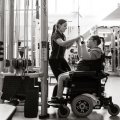From human heartbeats and biomolecular shapes to subatomic particles and cosmological dark matter, a parallel universe exists inside the world's computers. Almost every aspect of nature is being simulated on computer in an effort to better understand the real universe.
The latest techniques, results and hardware will be presented at the Conference on Computational Physics 2000 being held December 3-8 at the Hyatt Regency, Sanctuary Cove.
"In an era of advanced technology, computer simulations are providing us with better information, in many cases more cheaply and safely than by doing 'real' experiments," said Professor Peter Drummond, University of Queensland physicist and chair of the conference organising committee.
"The breadth of topics being addressed by computational physicists is quite astonishing. Everything from the smallest scale structure of matter through everyday human biological structures to the galactic scale is being simulated."
Some of the invited speakers to the conference include:
o Professor Ralph Roskies, Pittsburgh Supercomputing Center, University of Pittsburgh, USA
Terascale computing-the largest supercomputer in the world will be constructed in 2001 with the support of the US National Science Foundation
o Professor Markus Hegland
Research School of Information Sciences and Engineering, Australian National University
Mining a decade of data for MACHOs (MAssive Compact Halo Objects), candidates for dark matter
o Professor Yuko Okamoto, Institute for Molecular Science, Japan
Understanding protein folding and structures, a vital biological challenge
o Professor Steven Louie, University of California at Berkeley, USA
Nanotubes (microscopic carbon tubes) and their roles in technological applications
Other topics to be discussed range over quantum computing, chaos theory, astrophysics, industrial applications, materials science, semiconductors and computer visualisation.
More details of the conference and program can be seen at http://CCP2000.physics.uq.edu.au/
For more information contact Professor Peter Drummond (mobile 0412 597 948) or Jan King at UQ Communications (telephone 07 3365 1120, mobile 0413 601 248)




